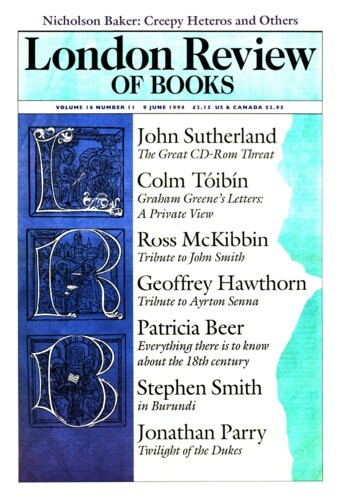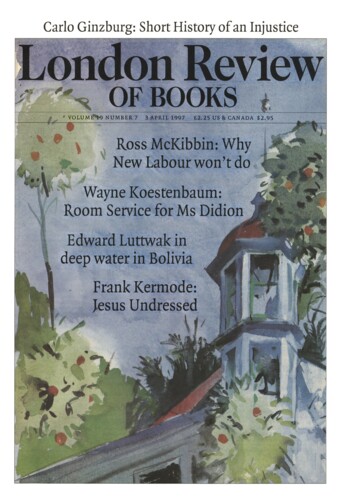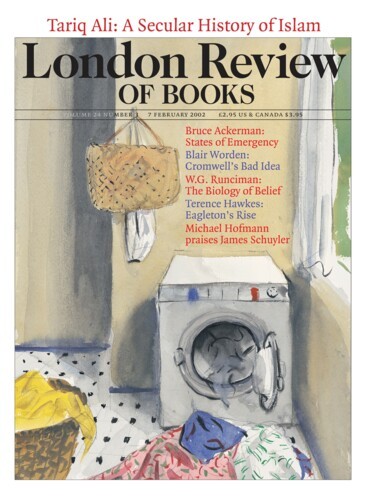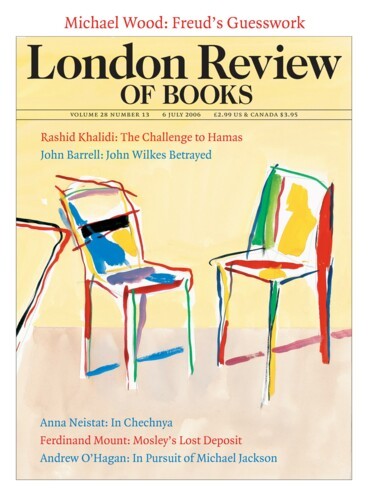Households of Patience
John Foot, 9 June 1994
In 1927, Antonio Gramsci was in chains, about to begin a nightmarish 19-day journey from Sicily to Milan’s San Vittore prison, when he met two ‘common criminals’ in a Palermo waiting-room. One of them refused to accept that he was indeed Gramsci ‘because Antonio Gramsci must be a giant and not such a tiny man.’ Disappointed, the man, Gramsci reported, ‘said nothing more, withdrew to a corner, sat down on an unmentionable contraption and stayed there, like Marius on the ruins of Carthage, meditating on his lost illusions. He painstakingly avoided speaking to me again during the time we remained in the same room and did not say goodbye when we parted.’





